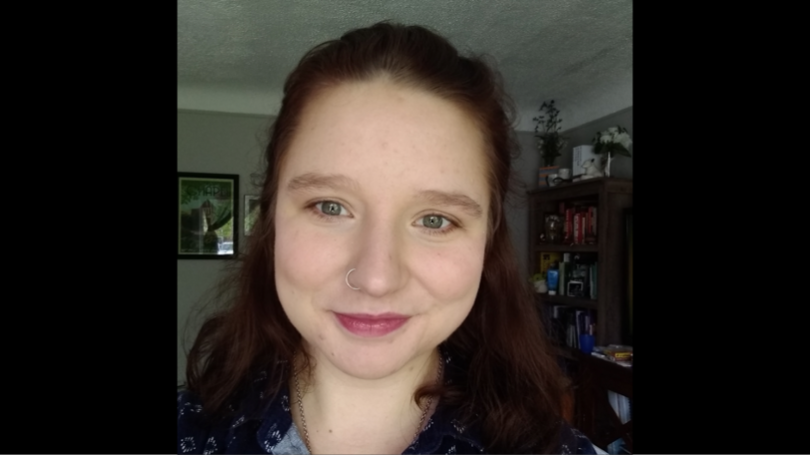
- About
- Consultation
- Programs
- Resources
- News & Events
Back to Top Nav
Back to Top Nav
Back to Top Nav
We are pleased to announce that Carly M Lesoski, Ph.D. has joined DCAL as the inaugural Learning Innovation Program Manager. In this new role, Carly provides project and program management for learning initiatives within DCAL's portfolio, including Accessible Dartmouth, which offers an Accessible Dartmouth grant for faculty. We asked Carly a few questions as she began settling into her new role at Dartmouth.
I am really passionate about increasing the accessibility of education for all students. The Accessible Dartmouth Initiative is so unique and such a great opportunity to create a Dartmouth where students rarely need to ask for accommodations, because we've already considered a broad range of student access needs.
Accessibility work is inherently collaborative work and I truly believe in the concept of "Nothing about us, without us." I am very much looking forward to meeting and partnering with Dartmouth students, staff, and faculty. I have already had such great conversations with staff and faculty members. The passion and drive are so evident in the conversations I've had with Dartmouth community members and I cannot wait to see us carve a unique niche as a neurodiversity-friendly ivy league university.
I'll try to keep this short but I took a rather indirect route to this role. I have a PhD in German studies and began teaching formally during graduate school. I started teaching much the same as other folks do, feeling that I really needed to be strict to get my students' respect. What I quickly realized is that my inflexibility was not conveying my high expectations, it was harming so many students, especially my marginalized students (i.e. disabled students, student parents, first generation students, etc.)
While finishing my dissertation I worked full-time as a Subject Matter Expert in German and wrote a 4 semester, fully asynchronous online German course for high schoolers. This work allowed me to dive head-first into accessibility by building a course in another language that was completely usable by screenreader users, deaf and hard-of-hearing learners, and students with mobility challenges. I had the chance to be really creative and fueled my interest in building these skills in instructors.
Shortly before the pandemic, I began working in my first eLearning Specialist role. Around this time, I was also diagnosed with ADHD, which spurred a lot of reflection on how much I could have benefitted from more neurodiversity-aware learning environments. The pandemic really brought the deep access needs of so many students to the forefront and it allowed me to spend so much time speaking with faculty about this important work.
I'm a huge nerd! I love playing DnD with my friends, crocheting, crafting, and reading. I live in Detroit, Michigan and I have 2 amazing young children. I speak German, the tiniest bit of Spanish, and I'm currently learning Dutch.
I would love to hear from students, staff, and faculty who might want to share their experiences with disability and access, especially in Dartmouth courses. Feel free to send me an email or schedule a meeting using my Calendly.